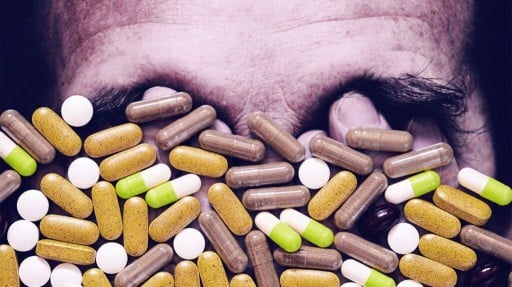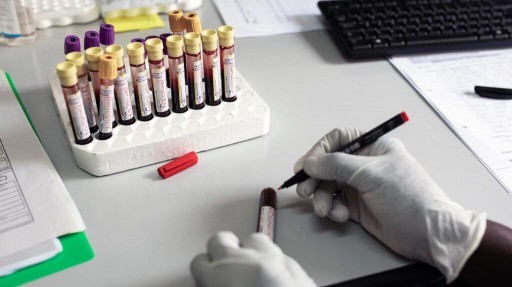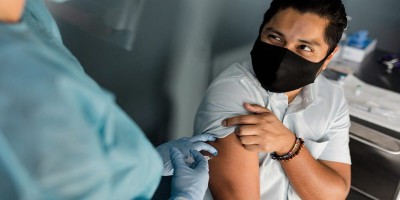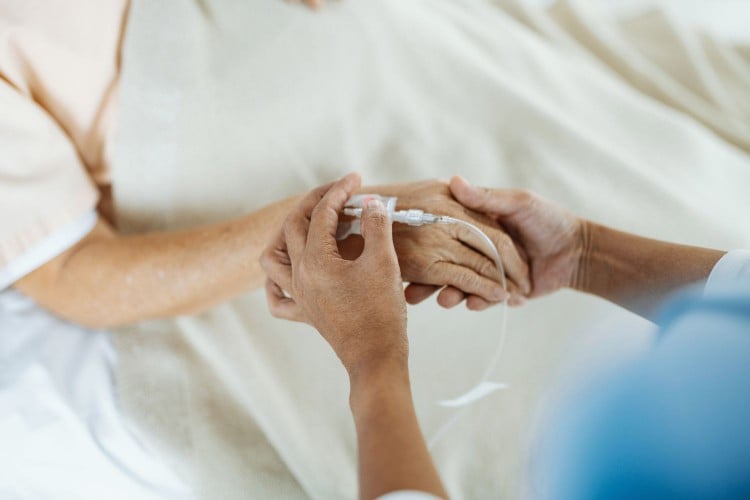
- Taking both erectile dysfunction medications and nitrates for angina (chest pain) may significantly increase the risk of cardiac events and death, a new study finds.
- Both drugs dilate blood vessels to increase blood flow, and when they function together, they may lead to a precipitous, hazardous drop in blood pressure.
- Erectile dysfunction is often an early indicator of cholesterol plaque buildup, reducing the width and blood flow capacity of blood vessels.
Men who are taking erectile dysfunction (ED) medications alongside nitrate medications for angina are at higher risk for cardiovascular morbidity and mortality, according to a new study from Sweden.
Taking ED drugs and nitrates at the same time effectively doubles their blood-vessel dilating effects, potentially resulting in an extreme drop in blood pressure.
The study analyzed data from 61,487 men in the Swedish Patient Register. Of these men, 55,777 men were treated only with nitrates, while 5,710 men were treated with nitrates and an ED medication.
In the study, men taking both drug types together were far more likely to die. Compared to men receiving nitrates only, their risk of mortality in general increased by 39%, cardiovascular mortality by 34%, and non-cardiovascular mortality by 40%.
In addition, the same group was 72% more likely to have a heart attack, 67% more likely to experience heart failure, 95% more likely to require cardiac revascularization, and 70% more likely to experience major cardiac events.
The study is published in the Journal of the American College of Cardiology.
Does erectile dysfunction signal heart problems?
While many men think of ED drugs only in the context of sexual function, it signifies more than that to cardiologists. The study’s first author Dr. Ylva Trolle Lagerros of the Karolinska Institute explained, “ED can be a clinical marker for future heart health issues.”
“It is sometimes called the harbinger for cardiovascular events,” said Dr. Lagerros.
Cardiologist Dr. Glenn N. Levine of the Baylor College of Medicine, who was not involved in the study but wrote an accompanying editorial, explained, “In many cases, they both involve the same basic process, namely vascular disease, a combination of atherosclerosis and endothelial dysfunction.”
Endothelium dysfunction describes a hardening of the endothelial cells lining blood vessel walls, making the vessels less flexible and less able to accommodate changing levels of blood flowing through the vessels.
Atherosclerosis is the buildup of cholesterol plaque on artery walls, narrowing them and affecting a healthy blood flow.
The greater concern, he said, is that “if you have cholesterol plaque in the arteries that lead to the penis, you very well might have cholesterol plaque in the other arteries throughout your body as well.” These include the arteries of the heart, potentially leading to a heart attack or — via the arteries in the brain — a stroke.
Chest pain and the heart
“If you have cholesterol plaque build-up in the arteries of your heart,” said Dr. Ni, “and it’s fairly significant, you’re going to get inadequate blood flow in times of stress or in times of increased oxygen demand. Let’s say, [when] you’re exercising, or you’re having sex.”
“In these scenarios, your heart needs more oxygen, and if there are blocked arteries impeding that blood flow, you’re going to get pain, and that pain is angina,” said Dr. Ni.
Why ED and chest pain drugs conflict
ED drugs are phosphodiesterase type 5 inhibitors (PDE5i), and they help improve blood flow to the penis by temporarily dilating the body’s blood vessels. Nitrate drugs also dilate blood vessels throughout the body.
Each type of medication individually results in a lowering of blood pressure — together, the effect is dangerously doubled.
“I think,” said Dr. Ni, “from a patient standpoint, the bottom line is if you’re taking a nitrate and an erectile dysfunction medication, you have to stop one or the other.”
What alternatives are there?
While PDE5i drugs are the recommended medications for ED, there are alternatives to nitrates for angina.
Dr. Levine said, “There are three basic types of antianginal therapy (plus an occasionally used fourth type).”
“Thus, at least some patients on chronic nitrate therapy can be tried on a different type of therapy to see if this adequately controls their angina,” he said.
There are, fortunately, also lifestyle changes that may improve both ED and angina.
If a man is experiencing ED and has obesity, addressing the second problem may address the first. Dr. Ni said, “I find that many patients who [have obesity] have issues with erectile dysfunction because of the conversion of testosterone into estrogen by body fat, which makes it difficult to achieve an erection.”
He further noted that obesity is a risk factor for numerous cardiovascular precursors, such as insulin resistance, localized inflammation, metabolic dysfunction, liver issues, and fat surrounding the heart capable of causing direct damage to the heart.
Dr. Lagerros cited several non-pharmaceutical approaches to resolving angina. These include not smoking, being physically active, and eating in a healthy manner, with more fruits, vegetables, and fish.
Keeping track of ED drugs can be tricky
Dr. Ni noted that partly due to the sporadic nature with which men go on and off ED drugs, it can be difficult for doctors to monitor the safety of a patient’s drug interactions.
“We have medication lists that we try to keep updated, and for various reasons, erectile dysfunction meds don’t make it to the list,” said Dr. Ni. “For example, patients will get the medication from a different pharmacy because of cost considerations.”
“This is where we have pharmacists review the medication list and ask the patients ‘are there any other medications that you are taking?’” said Dr. Ni.
“I do think,” he said, “there’s room for improvement on all fronts because of the known risks with the combination of nitrates and erectile dysfunction medications. I do think that it’s something that has become more and more of an issue as time has gone on.”








